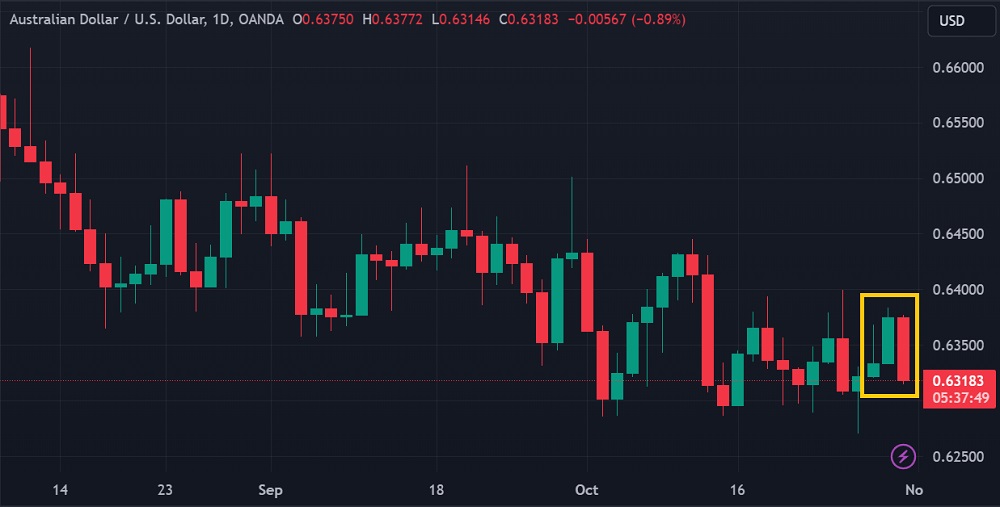The report on China's business activity has placed the Australian Dollar as the second-worst-performing currency today, following the Japanese Yen.
The Australian Dollar weakened 0.9% versus the US Dollar in Tuesday's trading (October 31). As a result, AUD/USD was reported to decline to the range of around 0.6310 as it entered the New York session, primarily due to the setback in China's business activity data.

The results of the Purchasing Managers' Index (PMI) survey for the manufacturing and non-manufacturing sectors in China in October 2023 experienced a setback. The Manufacturing PMI score fell from 50.2 to 49.5, indicating a shift from expansion to contraction. Meanwhile, the Non-manufacturing PMI score slipped from 51.7 to 50.6, below the consensus estimate set at 51.8.
The Chinese government's report placed the Australian Dollar as the second-worst-performing currency after the Japanese Yen in today's trading. The Aussie not only declined against the greenback but also against the Euro, New Zealand Dollar, and various other major rivals — except the yen.
"The BoJ disappointed investors by making only a minor tweak to its YCC, which led to the JPY underperforming the rest of the G10 during the Asian session. Weak China PMI data meant the AUD was not far behind the JPY," says Valentin Marinov, Head of G10 FX Strategy at Crédit Agricole.
However, some analysts believe that this data could prompt the Chinese government to inject more stimulus. Some argue that these data are just anomalies. Others suggest keeping an eye on the release of China's Caixin PMI data tomorrow for a more accurate picture.
Kristina Clifton, a foreign exchange strategist at Commonwealth Bank of Australia, warns against investing too much in the October PMIs.
"The Chinese official PMIs were weaker than expected in October. However the weaker readings likely reflect the eight-day holiday at the start of the month rather than a setback in the economic recovery," she says.
"We expect a gradual recovery in the Chinese economy to continue over the coming months," says Clifton.

 Dedicated FREE FOREX VPS
Dedicated FREE FOREX VPS Free FOREX Virtual Private Server
Free FOREX Virtual Private Server MT4 Demo Contest, Get $500
MT4 Demo Contest, Get $500 Sign Up for an Account, Claim 60% Deposit Bonus
Sign Up for an Account, Claim 60% Deposit Bonus Free MT4/MT5 VPS 2024
Free MT4/MT5 VPS 2024 Send E-mail and Get Free Merchandise
Send E-mail and Get Free Merchandise $1K Refer a Friend Bonus for Pepperstone Pro clients
$1K Refer a Friend Bonus for Pepperstone Pro clients Maximize Your Earnings with 100% Deposit bonus
Maximize Your Earnings with 100% Deposit bonus Trade to Win, $5,000 Monthly Demo Contest
Trade to Win, $5,000 Monthly Demo Contest Claim 30% + 15% Deposit Bonus from LiteFinance
Claim 30% + 15% Deposit Bonus from LiteFinance






